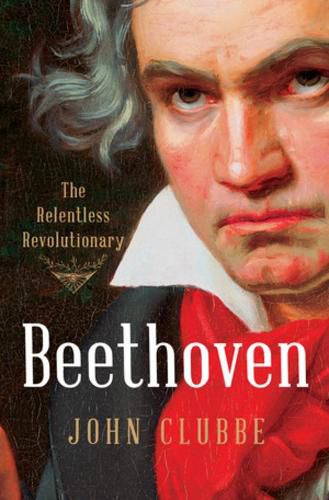Readings Newsletter
Become a Readings Member to make your shopping experience even easier.
Sign in or sign up for free!
You’re not far away from qualifying for FREE standard shipping within Australia
You’ve qualified for FREE standard shipping within Australia
The cart is loading…






Beethoven imbibed Enlightenment and revolutionary ideas in his hometown of Bonn, where they were fervently discussed in cafes and at the university. Moving to Vienna at the age of twenty-one to study with Haydn, he gained renown as a brilliant pianist and innovative composer. In that conservative city, capital of the Hapsburg empire, authorities were ever watchful to curtail and punish overt displays of radical political views. Nevertheless, Beethoven avidly followed the meteoric rise of Napoleon.
As Napoleon had made strides to liberate Europe from aristocratic oppression, so Beethoven desired to liberate humankind through music. He went beyond the musical forms of Haydn and Mozart, notably in the Eroica Symphony and his opera Fidelio, both inspired by the French Revolution and Napoleon.
John Clubbe illuminates Beethoven as a lifelong revolutionary through his compositions, portraits, and writings, and by setting him alongside major cultural figures of the time-among them Schiller, Goethe, Byron, Chateaubriand, and Goya.
$9.00 standard shipping within Australia
FREE standard shipping within Australia for orders over $100.00
Express & International shipping calculated at checkout
Beethoven imbibed Enlightenment and revolutionary ideas in his hometown of Bonn, where they were fervently discussed in cafes and at the university. Moving to Vienna at the age of twenty-one to study with Haydn, he gained renown as a brilliant pianist and innovative composer. In that conservative city, capital of the Hapsburg empire, authorities were ever watchful to curtail and punish overt displays of radical political views. Nevertheless, Beethoven avidly followed the meteoric rise of Napoleon.
As Napoleon had made strides to liberate Europe from aristocratic oppression, so Beethoven desired to liberate humankind through music. He went beyond the musical forms of Haydn and Mozart, notably in the Eroica Symphony and his opera Fidelio, both inspired by the French Revolution and Napoleon.
John Clubbe illuminates Beethoven as a lifelong revolutionary through his compositions, portraits, and writings, and by setting him alongside major cultural figures of the time-among them Schiller, Goethe, Byron, Chateaubriand, and Goya.